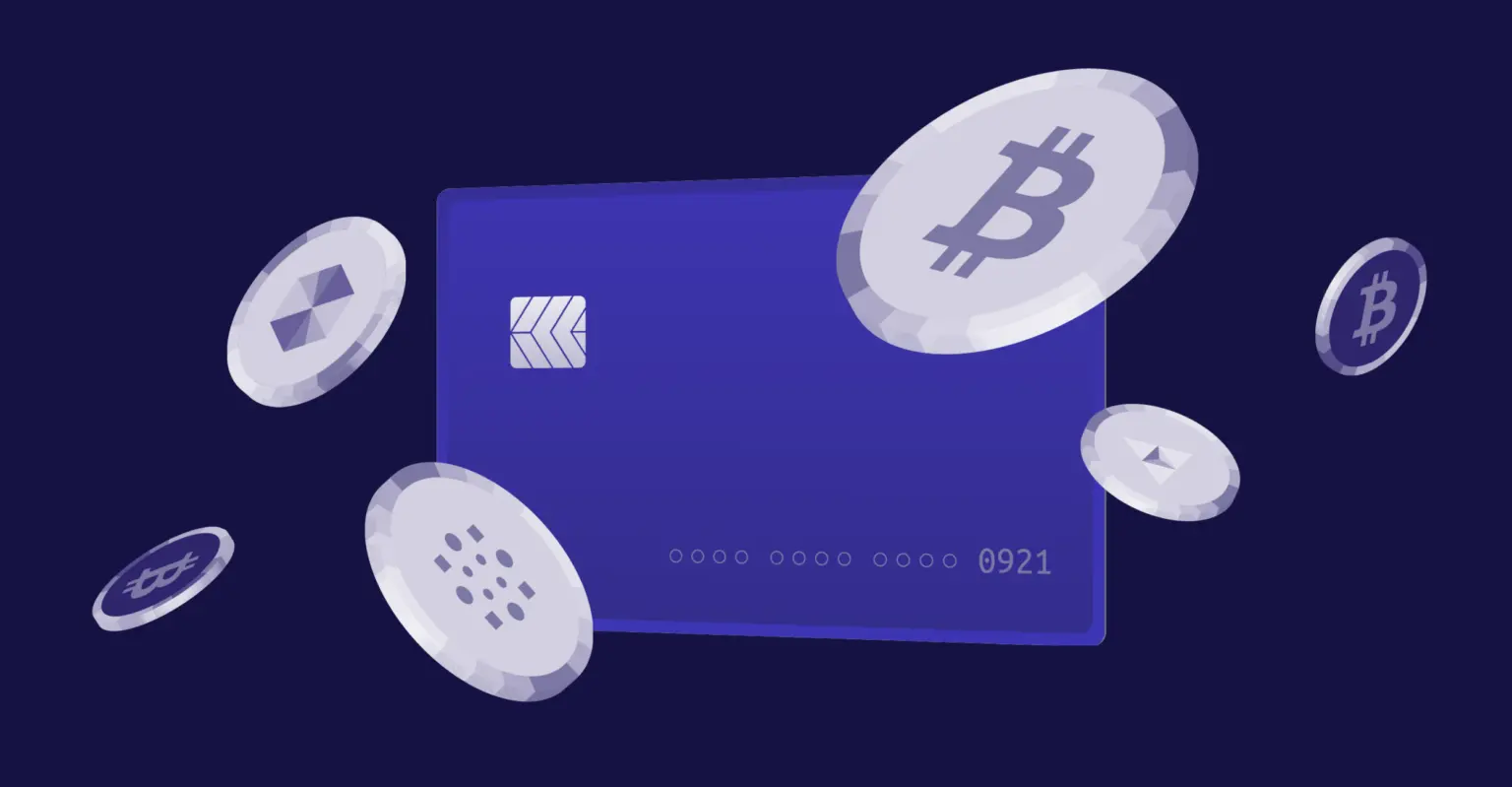Examples of Cryptocurrency Exchanges: Features, Fees & Security Comparison

Major cryptocurrency exchange examples include Coinbase (beginner-friendly), Binance (feature-rich), Kraken (security-focused), and Uniswap (decentralized), each offering different features, fees, and security measures.
You've decided to start trading crypto, but staring at the list of available exchanges feels overwhelming. There are hundreds of platforms out there, each claiming to be the best option for your needs.
The truth is that no single exchange is perfect for everyone. What works great for a day trader in Singapore might be terrible for a casual investor in Ohio. Features that matter to DeFi enthusiasts are irrelevant to Bitcoin maximalists.
Most people pick exchanges based on random recommendations or flashy marketing without understanding what they actually need. Then they get frustrated with high fees, limited features, or security problems that could have been avoided with proper research.
This guide examines real examples of different exchange types, showing you exactly what each platform offers and what type of trader they serve best. Instead of theoretical comparisons, you'll see actual features, real fee structures, and concrete security measures.
After learning about cryptocurrency exchange directories and research methods for finding good projects, choosing the right exchange becomes crucial for implementing your investment strategy.
Cryptocurrency Exchange Categories Overview
Understanding different exchange types helps you choose platforms that match your trading style and security preferences.
Centralized vs Decentralized Exchanges
Centralized Exchanges (CEXs) operate like traditional brokerages where the exchange holds your funds and facilitates trades. They offer familiar user experiences but require trusting the platform with your assets.
Examples include Coinbase, Binance, and Kraken. These platforms provide order books, advanced trading features, and customer support, but users don't control their private keys during trading.
Decentralized Exchanges (DEXs) run on blockchain networks using smart contracts. Users maintain control of their funds throughout the trading process, eliminating counterparty risk from exchange failures.
Examples include Uniswap, SushiSwap, and Curve. These platforms offer censorship resistance and self-custody but require more technical knowledge and often have higher transaction costs.
Regional vs Global Platforms
Global Exchanges serve users worldwide but may have geographic restrictions due to local regulations. They typically offer the most trading pairs and highest liquidity.
Regional Exchanges focus on specific countries or regions, providing local language support, fiat currency integration, and regulatory compliance tailored to their markets.
The choice often depends on your location, preferred fiat currencies, and local regulatory requirements.
Major Centralized Exchange Examples
These platforms represent the most popular centralized exchanges, each with distinct advantages for different user types.
Coinbase: Beginner-Friendly Platform
Target Audience: New crypto investors and casual traders Headquarters: United States (San Francisco) Founded: 2012
Key Features:
- Simple interface designed for beginners
- Strong regulatory compliance and insurance coverage
- Direct bank account integration for easy fiat deposits
- Educational content and earn-while-learning programs
- Institutional services through Coinbase Pro
Fee Structure:
- Coinbase (basic): 0.5% spread plus fees up to 4% for instant purchases
- Coinbase Pro: 0.5% maker/taker fees, lower for high volume
- Bank transfer deposits: Free
- Credit card purchases: 3.99% fee
Security Measures:
- 98% of funds stored in offline cold storage
- Comprehensive insurance coverage for digital assets
- Two-factor authentication required
- Withdrawal whitelist and delay options
- Regular security audits and bug bounty programs
Supported Assets: 200+ cryptocurrencies including major coins and popular altcoins
Pros: User-friendly, highly regulated, strong security, good customer support Cons: Higher fees than competitors, limited advanced trading features on basic platform
Coinbase works best for beginners who prioritize ease of use and regulatory compliance over low fees or advanced features.
Binance: Feature-Rich Global Exchange
Target Audience: Active traders and DeFi users Headquarters: Multiple jurisdictions (global operations) Founded: 2017
Key Features:
- Largest crypto exchange by trading volume
- Extensive selection of cryptocurrencies and trading pairs
- Advanced trading features including futures, options, and margin
- Integrated DeFi services and yield farming
- Native token (BNB) provides fee discounts
Fee Structure:
- Spot trading: 0.1% maker/taker fees
- BNB discount: Up to 25% fee reduction
- Futures trading: 0.02% maker, 0.04% taker
- Withdrawal fees vary by cryptocurrency
Security Measures:
- SAFU (Secure Asset Fund for Users) insurance fund
- Multi-tier architecture and advanced security systems
- Regular security audits and penetration testing
- Anti-phishing measures and device management
- Proof of reserves reporting
Supported Assets: 600+ cryptocurrencies and numerous trading pairs
Pros: Low fees, extensive features, high liquidity, wide asset selection Cons: Overwhelming for beginners, regulatory challenges in some jurisdictions
Binance suits experienced traders who want comprehensive features and low fees, though the interface can overwhelm newcomers.
Kraken: Security-Focused Trading
Target Audience: Security-conscious traders and institutions Headquarters: United States (San Francisco) Founded: 2011
Key Features:
- Industry-leading security measures and track record
- Advanced order types and trading features
- Margin trading and futures markets
- Comprehensive API for algorithmic trading
- Strong regulatory compliance in multiple jurisdictions
Fee Structure:
- Spot trading: 0.16% maker, 0.26% taker (decreases with volume)
- Margin trading: 0.02% every 4 hours
- Futures: 0.02% maker, 0.05% taker
- Bank deposits: Free, wire withdrawals: $5-25
Security Measures:
- Hardware security keys support
- Advanced two-factor authentication options
- Cold storage for majority of funds
- Regular third-party security audits
- Global Settings Lock for account protection
Supported Assets: 100+ cryptocurrencies with focus on established projects
Pros: Excellent security, regulatory compliance, professional features Cons: Complex interface, limited asset selection compared to competitors
Kraken appeals to security-conscious users who prioritize fund safety and professional trading features over simplicity.
Gemini: Regulatory Compliant Platform
Target Audience: Institutional investors and compliance-focused users Headquarters: United States (New York) Founded: 2014
Key Features:
- Regulated as a trust company in New York
- Institutional-grade custody and trading services
- Clean, professional interface
- Strong compliance and regulatory relationships
- Integration with traditional finance systems
Fee Structure:
- Trading fees: 0.25% maker, 0.35% taker
- Active Trader: Lower fees for frequent traders
- Bank transfers: Free
- Debit card purchases: 3.49% fee
Security Measures:
- SOC 2 Type 2 certified infrastructure
- Multi-party computation for private key management
- Insurance coverage for digital assets
- Hardware security keys and biometric authentication
- Regular compliance audits
Supported Assets: 100+ carefully vetted cryptocurrencies
Pros: Strong regulatory compliance, institutional features, excellent security Cons: Higher fees, limited asset selection, restricted availability
Gemini works best for institutions and users who prioritize regulatory compliance and professional-grade infrastructure.
Decentralized Exchange Examples
DEXs offer self-custody trading but require more technical knowledge and understanding of DeFi protocols.
Uniswap: Leading AMM Protocol
Type: Automated Market Maker (AMM) Blockchain: Ethereum and Layer 2 networks Founded: 2018
Key Features:
- Largest DEX by trading volume
- Permissionless token listing
- Automated liquidity provision
- Integrated with most DeFi wallets
- Governance through UNI token
Fee Structure:
- Trading fees: 0.05% to 1% depending on pair
- Gas fees: Variable based on Ethereum network congestion
- No account fees or minimums
Security Model:
- Non-custodial trading from your wallet
- Open-source smart contracts
- Multiple security audits
- Bug bounty programs
- Decentralized governance
Supported Assets: Thousands of ERC-20 tokens
Pros: Self-custody, wide token selection, no KYC required Cons: High gas fees on Ethereum, potential for low liquidity pairs
Uniswap suits DeFi users who want access to new tokens and prefer self-custody trading.
SushiSwap: Community-Driven DEX
Type: Community-governed AMM Blockchain: Multiple chains Founded: 2020
Key Features:
- Multi-chain DEX across various networks
- Community governance and development
- Additional DeFi services beyond trading
- Yield farming and staking opportunities
- SUSHI token for governance and rewards
Fee Structure:
- Trading fees: 0.25% to 0.3%
- Portion of fees distributed to SUSHI stakers
- Gas fees vary by blockchain
Security Model:
- Decentralized governance through SUSHI token
- Regular security audits
- Multi-signature controls for protocol upgrades
- Community-driven security monitoring
Supported Assets: Tokens across multiple blockchain networks
Pros: Multi-chain support, community governance, additional DeFi features Cons: Smaller liquidity than Uniswap, governance token concentration
SushiSwap appeals to users who want multi-chain access and community-driven development.
Curve: Stablecoin Specialist
Type: Specialized AMM for stablecoins Blockchain: Ethereum and Layer 2 Founded: 2020
Key Features:
- Optimized for stablecoin and similar asset trading
- Low slippage for large trades
- Integration with yield farming protocols
- Vote-escrowed tokenomics (veCRV)
- Gauge system for liquidity incentives
Fee Structure:
- Trading fees: 0.04% for most pools
- Gas fees for Ethereum transactions
- Rewards through CRV token distribution
Security Model:
- Audited smart contracts
- Governance through veCRV holders
- Emergency pause capabilities
- Conservative approach to new features
Supported Assets: Stablecoins, wrapped Bitcoin, and liquid staking tokens
Pros: Best rates for stablecoin swaps, low slippage, yield opportunities Cons: Limited to specific asset types, complex tokenomics
Curve works best for users trading stablecoins or seeking yield on stable assets.
Specialized Exchange Examples
Some exchanges focus on specific trading types or serve niche markets within the crypto ecosystem.
Derivatives Platforms (Binance Futures, FTX)
Binance Futures offers perpetual contracts and quarterly futures with up to 125x leverage. The platform includes advanced order types, funding rate arbitrage, and portfolio margin options.
Note: FTX collapsed in November 2022, serving as a reminder of counterparty risks in centralized derivatives trading.
Features:
- High leverage trading (up to 125x)
- Advanced order types and risk management
- Cross-margin and isolated margin modes
- API access for algorithmic trading
Risks: Extreme leverage can lead to total loss, funding costs, and platform risk.
Fiat On-Ramps (Coinbase, Kraken)
These exchanges specialize in converting traditional currency to cryptocurrency, offering:
Bank Integration: Direct connection to checking accounts for easy deposits and withdrawals
Credit Card Support: Instant purchases using debit or credit cards (with higher fees)
Wire Transfer Services: Large transaction support for institutional clients
Regulatory Compliance: KYC/AML procedures required for fiat transactions
Privacy-Focused Exchanges
Some platforms emphasize user privacy and minimal KYC requirements:
Bisq: Peer-to-peer decentralized exchange with no central authority KuCoin: Centralized exchange with minimal KYC for smaller amounts DEX Aggregators: Platforms that route trades across multiple DEXs
These platforms trade convenience and liquidity for increased privacy and reduced regulatory oversight.
Comprehensive Comparison Matrix
Here's how major exchanges compare across key metrics that matter to traders:
Trading Fees Analysis
Lowest Fees:
- Binance: 0.1% (0.075% with BNB discount)
- KuCoin: 0.1%
- Kraken: 0.16% maker, 0.26% taker
Mid-Range Fees:
- Gemini: 0.25% maker, 0.35% taker
- Coinbase Pro: 0.5% maker/taker
Higher Fees:
- Coinbase: Up to 4% for instant purchases
- DEXs: 0.25-1% plus gas fees
Fee structures often include volume discounts, so active traders pay less than casual users.
Security Features Breakdown
Highest Security:
- Kraken: Hardware keys, advanced 2FA, cold storage
- Gemini: SOC 2 certification, insurance, regulatory oversight
- Coinbase: Insurance coverage, regulatory compliance
Good Security:
- Binance: SAFU fund, multi-tier architecture
- DEXs: Self-custody, no central point of failure
Security Considerations:
- Centralized exchanges face hacking risks but offer insurance
- DEXs eliminate platform risk but require personal security management
Supported Assets and Pairs
Widest Selection:
- Binance: 600+ cryptocurrencies
- KuCoin: 400+ cryptocurrencies
- Uniswap: Thousands of tokens (with varying liquidity)
Curated Selection:
- Coinbase: 200+ vetted cryptocurrencies
- Gemini: 100+ carefully reviewed assets
- Kraken: 100+ established cryptocurrencies
More assets aren't always better - quality curation can protect users from scam projects.
Choosing the Right Exchange Type
Your choice should align with your trading experience, security preferences, and specific needs.
For Beginners:
- Start with Coinbase for ease of use and education
- Consider Gemini for regulatory compliance
- Avoid complex platforms until you gain experience
For Active Traders:
- Binance offers the most features and lowest fees
- Kraken provides professional tools with strong security
- Consider multiple exchanges for different purposes
For DeFi Users:
- Uniswap for token access and self-custody
- DEX aggregators for best prices across platforms
- Hardware wallets for secure interaction
For Institutions:
- Gemini or Coinbase for regulatory compliance
- Kraken for professional trading features
- Consider custody solutions for large amounts
Security Best Practices Across Platforms
Regardless of which exchange you choose, follow these security practices:
Account Security:
- Enable two-factor authentication using authenticator apps
- Use unique, strong passwords for each account
- Regularly review account activity and settings
- Enable withdrawal whitelisting where available
Fund Management:
- Don't keep large amounts on exchanges long-term
- Use hardware wallets for cold storage
- Diversify across multiple platforms if needed
- Understand insurance coverage and limits
Transaction Security:
- Verify addresses before sending funds
- Start with small test transactions
- Double-check network selections (avoid wrong chains)
- Be aware of phishing attempts and fake websites
Platform Research:
- Verify exchange legitimacy and regulatory status
- Read terms of service and understand fee structures
- Check security track records and audit reports
- Monitor news about platform developments
Ready to choose the right exchange for your needs? Decentralized Masters teaches the proven ABN System for navigating crypto exchanges safely while building wealth through DeFi. Learn why understanding banking alternatives helps you choose between centralized and decentralized platforms.
Frequently Asked Questions
Which exchange has the most cryptocurrencies?
Binance and DEXs like Uniswap offer the widest selection, though not all tokens have good liquidity or legitimate projects behind them.
Do I need to complete KYC on all exchanges?
Centralized exchanges typically require KYC for fiat transactions and higher limits. DEXs generally don't require KYC but may have limited fiat access.
What happens if my exchange gets hacked?
Reputable exchanges have insurance coverage and security funds, but recovery isn't guaranteed. This is why self-custody for large amounts is recommended.
How do I know if an exchange is legitimate?
Check regulatory licenses, security audits, team transparency, and user reviews. Avoid platforms making unrealistic promises or lacking proper documentation.
Can I use multiple exchanges?
Yes, many traders use different exchanges for different purposes - one for fiat conversion, another for altcoin trading, and DEXs for new tokens.
Are decentralized exchanges safer than centralized ones?
DEXs eliminate platform risk but require users to manage their own security. The "safer" option depends on your technical skills and security practices.
What's the cheapest crypto exchange?
Binance typically offers the lowest trading fees at 0.1%, with additional discounts available for BNB holders.
Which exchange is best for beginners?
Coinbase offers the most beginner-friendly experience with educational content, simple interface, and strong regulatory compliance.




